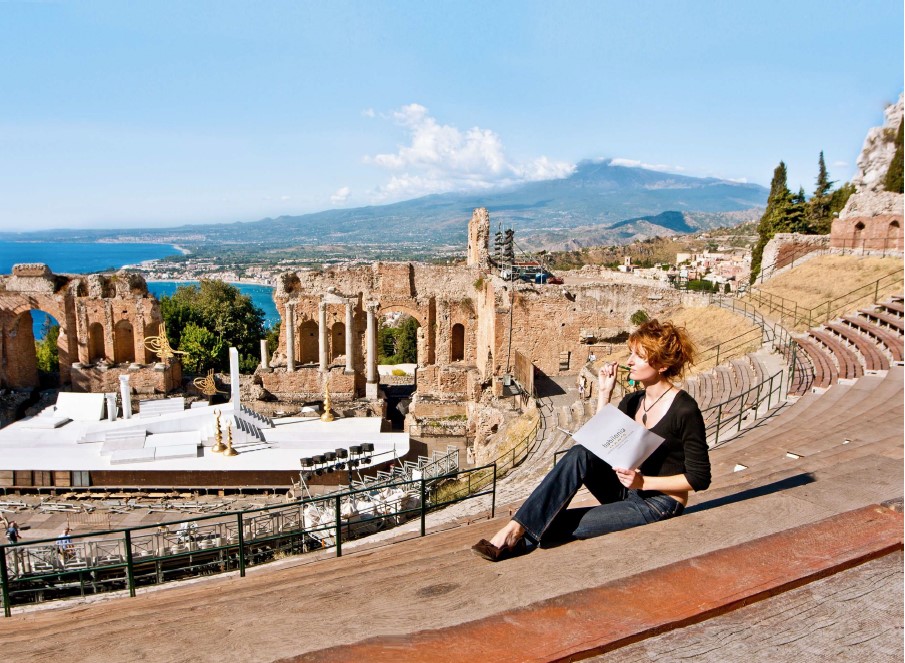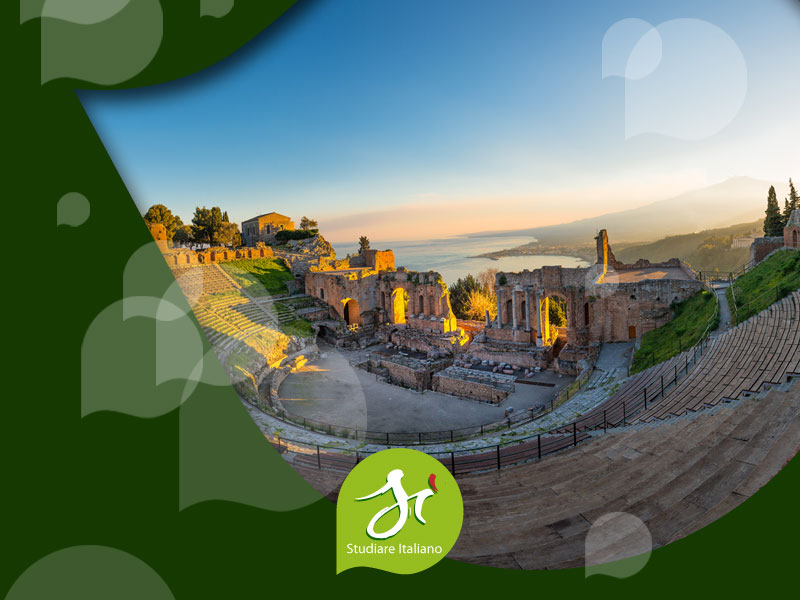«If someone were to spend just one day in Sicily and ask, What must be seen? I would answer without hesitation: Taormina.” Saying this is Guy de Maupassant, a lover of the area and a great promoter of its beauty.

Strolling through the streets of Taormina, you can’t help but be captivated by magnificent scenes, scents and colors. You fall in love with the warmth of Sicily, its foods and history. Then you hear, by chance, a few words in dialect and a new world opens up before your eyes: centuries of history find their synthesis in a language full of facets.We have selected seven idioms that well represent the vibrancy of this land and its language.
Nuddu si pigghia si ‘un s’assimigghia.
Italian: Nessuno si sceglie se non si somiglia
This proverb reminds us how it is easier to surround ourselves with people who are similar to us. Literally we choose to have by our side those who are most akin to our view of things. Sharing passions, interests and hobbies is the basis of the strongest relationships of love or friendship. The popular wisdom embraces the idea of elective affinity, which makes commonalities the driving engine of attraction.
Pignata taliata ‘un vugghi mai
Italian: La pentola osservata non bolle mai.
In this case, the image is immediately meaningful: watching a pot waitingfor the water to boil will not make it boil sooner, quite the contrary! It is an invitation not to be impatient and towait for the time to be ripe.How many times have you been waiting for something with great excitement or anxiety? Time seems to dilate, flow more slowly and move your goal away from you, whether it is a good plate of pasta or an important milestone.
Savva a pezza pi quannu veni u puttusu
Italian: Conserva la pezza o la toppa per quando ci sarà il buco.
Folk wisdom teaches us to be shrewd and not to waste our resources. Literally, it invites us to conserve cloth today so that we can mend a hole tomorrow. A very powerful image that invites us to reflect on how even the things that seem to be of no use to us today can come in handy tomorrow to cope with life’s unexpected events.
Cu nasci tunnu ‘un po moriri quatratu
Italian: Chi nasce tondo non può morire quadrato
This saying is meant to emphasize how difficult it is for human beings to change their nature. Human beings are prone to repeat the same behaviors and sometimes even the same mistakes, even if they do not want to.It is almost used as a justification for those who fail to realize their limitations. There is another variant of this fishing-related proverb: “cu nasci tunnu ‘un po moriri pisci spata.” The meaning is the same, only the image changes, which brings our minds back to the Strait of Messina or the famous Sicilian tuna nets.
Cchiu scuru i menzanotti un po’ fari
Italian: Non può esserci più buio di quanto ce ne sia a mezzanotte
If you have a Sicilian friend, you will have heard him or her say this phrase at least once. It is almost a mantra to ward off fear in the hardest of times, a way of reminding-first and foremost oneself-that even the worst moments sooner or later pass. So what does it mean that there can’t be any darker than midnight? It means that if worse comes to worse, things can only get better.
Cu mancia fa muddichi
Italian: Chi mangia, fa briciole
There are two possible explanations for this saying related to the imagery of the table, like many of the Sicilian proverbs. The idea is “he who does, errs.” It is an invitation not to get angry at the small mistakes one makes on one’s path, because those who set out inevitably have to confront the possibility of making mistakes.A second meaning refers instead to the impossibility of acting in secret, because the traces of our actions are always visible.
Comu veni si cunta
Italian: Come viene si racconta
It is not easy to translate this expression since it seems to encompass multiple nuances. The idea is not to be disturbed by how a given situation will develop even before it arises. Literally: we will tell things the way they will develop. This does not mean passively accepting the flow of things, but being ready to welcome even the unexpected events of life and to put ourselves out there, without letting ourselves be blocked by fear of what might happen.
Esplora città italiane come Milano, Firenze, Venezia, Roma e Taormina e scopri la creatività e la musicalità sei nostri proverbi e frasi distintive. I modi di dire italiani spesso non sono traducibili in altre lingue e possono risultare di difficile comprensione. Tuttavia, giocare con questi idiomi può essere un’esperienza divertente ed educativa che ti aiuterà a immergerti nella cultura italiana in modo più autentico.

